#Cymraeg
Explore tagged Tumblr posts
Text
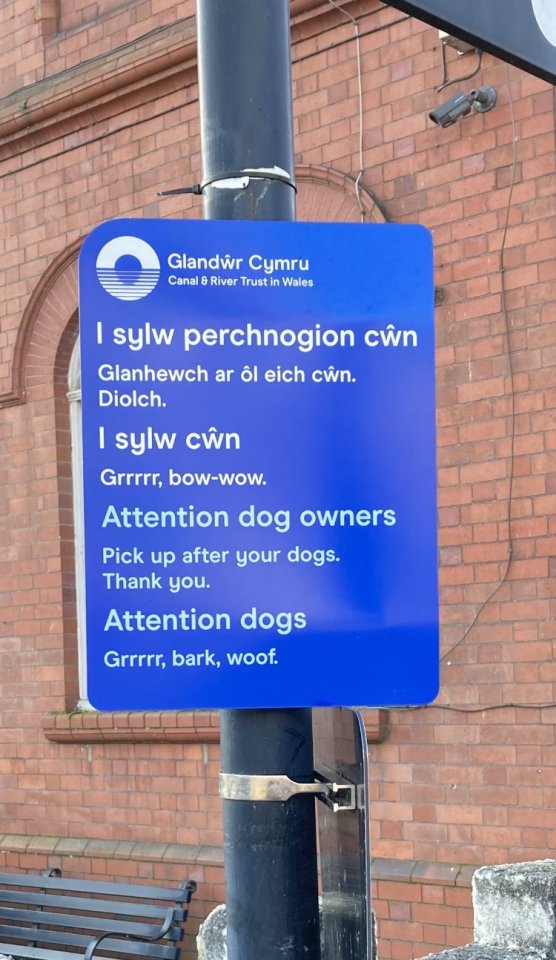
This is a funny sign and all but I think the main takeaway should be that there is Dog English and Dog Welsh (Cimraeg?!?!?!?)
12K notes
·
View notes
Text
sutmae'rpab
bu farw
dead
46K notes
·
View notes
Text

Fox == llwynog
3K notes
·
View notes
Text
I figured the Jolene loving site needed to see this
11K notes
·
View notes
Note
Hey, I’m doing a design project based around the Welsh language as was wondering if you knew if there was any word for ‘welsh person’. Like Welshman being Cymro and Welshwoman being Cymraes. Do you know if there’s (even if not official) any gender neutral version?
Apologies for only just answering this ask!
You're probably already aware of Cymry (Welsh people) the plural of Cymro - which is unfortunately plural and not singular. But Cymro/Cymry are interesting in that they aren't suffixed with an -o or a -y - they're both derived from kömroɣ* - the (reconstructed) Common Brittonic word for compatriot. Whereas Cymraes takes Cymro and swaps in-aes/-es, the feminine suffix. Similarly, you have athro (male teacher) and athrawes (female teacher), brenin (king) and brenhines (queen), actor (male actor) and actores (female actor), Norwyad (Norwegian man), Norwyes (Norwegian woman) etc. Each time, the masculine form is treated as the default and only modified with a feminine ending -es/aes when a woman is being referred to. Which is a feature shared with many other gendered European languages *sigh*. It's frustrating but it leaves us with 2 choices:
Simply adopt the masculine form as the sole term and use it for everyone, regardless of gender. E.g. many women refuse to use athrawes for themselves and will say athro to refer to a female teacher. Ditto actor instead of actores (a similar process has occurred in English with many gendered words such as actress and waitress being phased out in favour of simply using actor, waiter for everyone regardless of gender).
Use an additional suffix which denotes gender neutrality. I am a (very rusty) Spanish speaker and there is a movement in Spanish to use gender neutral -e in places where masculine -o or feminine -a are used. E.g. Latine instead of Latino/Latina. There have been attempts to do this in Welsh but they haven't had much traction (I know of attempts dating back at least a decade. But there isn't a consensus on what a suitable gender neutral suffix might be (a problem also shared with Spanish speakers, some of whom have used -x instead of -o/-a, e.g. Latinx. The use of -x has been more controversial than -e, however). In Welsh, I have only seen propositions for gender neutral pronouns, rather than suffixes. Which have not yet been addressed.
On solution 2., there are issues which haven't really been worked out (hence why I think the first gender neutral movement in Welsh (largely online) ran out of steam). But mayhaps this ask is a springboard to opening this discussion up to other Welsh speakers.
My 2 cents are that we're going to need a sound - ideally a vowel which isn't already in use as a suffix denoting something specific. My gut instinct is to go to -y, but we cannot use -y due to Cymry already existing. -W sounds great in theory but is clunky on its own when attempting to form neologisms with it. E.g. Cymrw, Athrw, Norwyw etc. If -es is taken by the feminine, that leaves -a, and -i to play with - both of which already exist as suffixes in other contexts (but that isn't a complete dealbreaker).
Theoretically one could take a leaf out of the book of the feminine suffix -es and add an 's'. Which might lead to things like -ws to help with flow. -Ws already exists but is very colloquial and low frequency, which could be a goer (no promises - I'm a descriptivist not a prscriptivist!). E.g. you could have Cymrws, Athrws, Norwyws (greater development needed imo). which helps with the flow.
"Ydy'r athrawes wedi mynd? (Has the (female) teacher gone?) -> "Ydy'r athrws wedi mynd?" (Has the teacher (gender neutral) gone?).
Buuuuut the problem with -ws is that depending on accent, it might get mistaken as -es/aes in speech, particularly fast speech.
Another alternative might be -a or -i. E.g. Cymra, Athra, Norwya (though -a is often gendered feminine in other European languages and may be misleading on that front). Or Cymri, Athri, Norwyi (has immediate problems due to similarity in sound to Cymry and clunkiness with other words).
Cymraes differs to most other words suffixed with -es (for complicated historical reasons [See section § 65 in A Welsh Grammar, Historical and Comparative (1913)]. In principle, -es becomes -aes in only this case. Which is why we have Norwyes (or Eidales, Ffrances etc.) and Cymraes rather that Cymres. Based on this, for any neologism to work, it has to mimic this sound change in a way which seems natural, despite being a new addition to the language. "ae" is a dipthong in Welsh and for historical reasons,-es -> -aes in this case. Therefore a gender neutral replacement for -aes must also include a dipthong to preserve flow as best as possible and resemble the sound changes which Cymraes went through to get to where it is now. In other words we're getting into queer space-time territory because we have to be present in both the past and the present (linguistically speaking) simultaneously. In effect, we're conlanging for gender neutrality in a living language. Because the stem we're using (Cymr-) is so old (roughly 2500 years old but I am simplifying things here for brevity), we have to play by the old rules if that makes sense? Or it won't look or sound right. Ergo, I think using a dipthong containing "w" would be the best bet. E.g. Cymruws (Cymr- + -uw- + s).
But this is all conjecture and theorising from one person (me) so huge pinch of salt this is my 2 cents and nothing more. But, having said that I'd appreciate any other Welsh speakers weighing in with opinions (even if it's to say certain words sound clunky etc.).
248 notes
·
View notes
Text

so yknow how miku has a leek and the leek is the national emblem of wales?
#drawing#art#digital art#art drawing#fanart#my art#miku#miku in your culture#miku international#wales#welsh#cymru#cymraeg#hatsune miku vocaloid#vocaloid hatsune#hatsune miku#hatsune fanart#miku fanart#miku vocaloid#miku hatsune
499 notes
·
View notes
Note
am dy fod yn flog swyddogol cymru, falle alle ti rhoi'r gair ola ar yr hen ddadl. llaeth neu llefrith?
LLAETH AM BYTH
273 notes
·
View notes
Text
i do a little dance whenever welsh ppl reblog my welsh miku art with something like “YOOOO MICŴ CYMRAEG!!! DYDD GWYL DEWI MICŴ HELL YEAH” DWI’N CARU CHI GYD <33333 MAE’R CELF AM CHI!!!!!!

260 notes
·
View notes
Text
Any fluent Welsh speakers here?
204 notes
·
View notes
Text
ar y tân. straight up "berwing it". and by "it", haha, well, lets just say. My sosbenits
117 notes
·
View notes
Text

I have made some Welsh LGBTQ+ Prints!
P'nawn da! Today is the day I'm finally launching my Welsh LGBTQ+ prints for sale (find them here). Like with my dissertation, they're pay as you feel (min. £2 plus postage) and I can post them to the UK, US, EU and Canada! Designs include the 2017 Gilbert Baker flag with the stripe meanings in Welsh and English, the map of Wales featuring my pride redesigns of the historic county flags of Wales, lesbian redesign of the Cardiff flag and a brand new design featuring 12 pride flags with the names of each in Welsh and English. I have 5 of each print in stock!
If you're new here or didn't know, unfortunately I experienced several major life changes this year which have really affected my finances (hospitalisation, long term relationship ended, emergency house move, job loss due to employer discrimination and a family member diagnosed with a terminal illness. For more details see this post). In order to help support myself I'm offering these prints for sale while I search for a new part time job. At the time of writing, I only have enough money in savings to cover 2 more months of rent and bills (not including food), so anything you can spare will help me afford food and keep doing what I love. I also have a patreon if you want to support me there.
I have also got my 47-page undergraduate dissertation on the development of Welsh-language terminology between 1972 and 2022 available here as pay as you feel (even £1!). Any support is hugely, hugely appreciated.
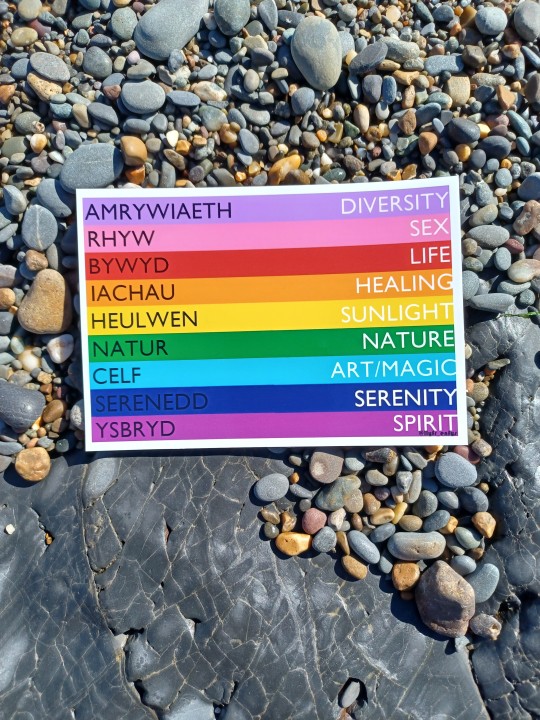



#cymraeg#welsh#cymblr#lhdt#cymru#prints#cardiff#caerdydd#county flags#hoyw#lesbiaidd#deurywiol#trawsryweddol#please share this if you are able#diolch!#lleshop
354 notes
·
View notes
Text
Irish people 🤝 Scottish people 🤝 Welsh people
having cool ass names
74 notes
·
View notes
Note
Is there an official Welsh word of the year? Like the Oxford word of the year (but better).
only for you anon
#postio cymru#cwestiynau#word of the year#cymraeg#welsh#iaith#dysgu cymraeg#learning welsh#cymblr#tymblr
233 notes
·
View notes
Text
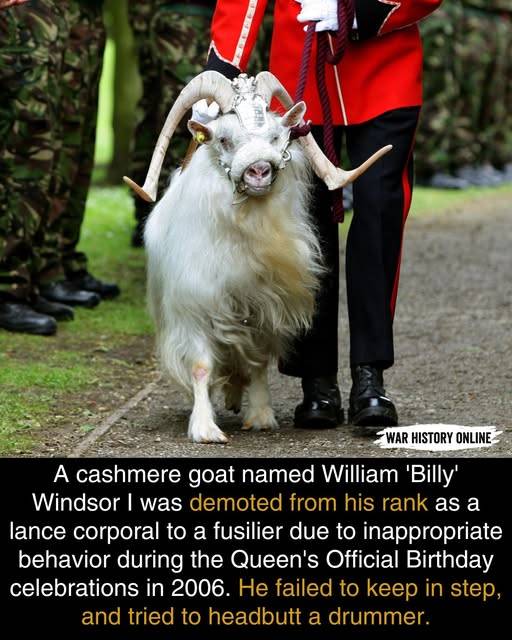
Fusilier Windsor was charged with "unacceptable behaviour", "lack of decorum" and "disobeying a direct order." All information below from Wikipedia:
A Canadian animal rights group protested to the British Army, stating that he was merely "acting the goat", and should be reinstated. Three months later, on 20 September at the same parade ground, Billy regained his rank during the Alma Day parade which celebrates the Royal Welsh victory in the Crimean War. Captain Simon Clarke said, "Billy performed exceptionally well, he has had all summer to reflect on his behaviour at the Queen's birthday and clearly earned the rank he deserves".
Billy received his promotion from the colonel of the Royal Welsh Regiment, Brigadier Roderick Porter. As a result of regaining his rank, he also regained his membership of the corporals' mess.
Billy is not the first goat in the army to have troubles. At one time a royal goat was "prostituted" by being offered for stud services by the regiment's serving goat major to a Wrexham goat breeder. First charged with lèse-majesté, the goat major was ultimately court-martialled under the lesser charge of "disrespect to an officer" and reduced in rank. The goat major claimed he did it out of compassion for the goat, but this failed to impress the court. Another royal fusilier goat earned the nickname "the rebel", after he butted a colonel while he was stooped over fixing his uniform's trouser-strap. The incident was described as a "disgraceful act of insubordination.
At the time of posting, William "Billy" Windsor is honorably retired and residing in a Bedfordshire Zoo. He's outlived Queen Elizabeth II. So there's that.
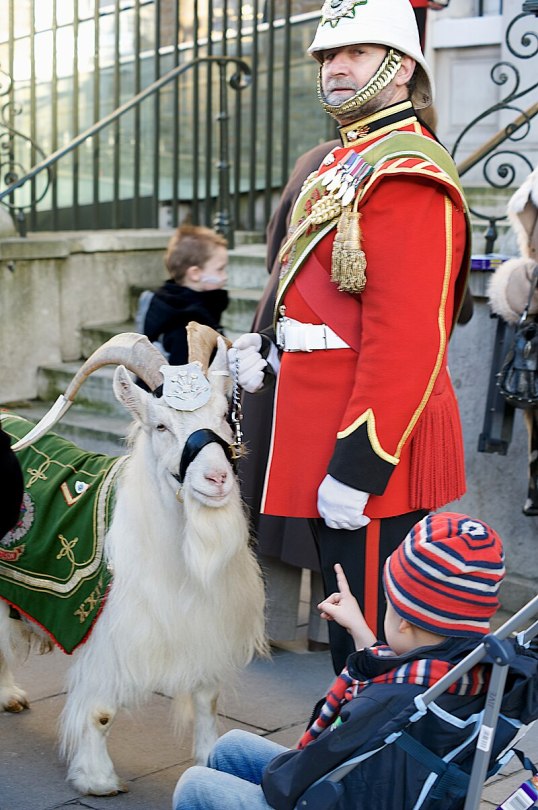
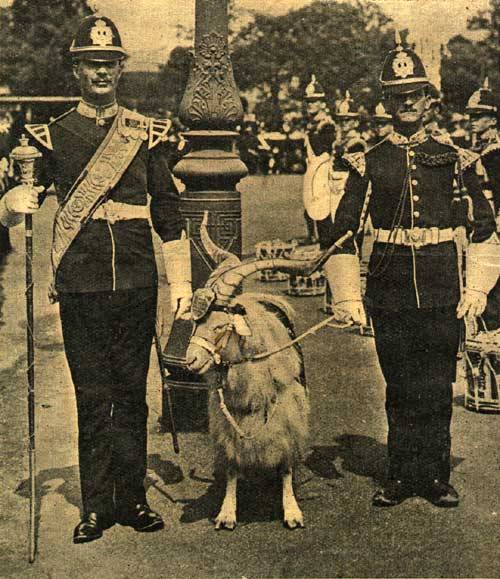
Another regimental goat: Taffy IV, of the 2nd Battalion of the Welsh Regiment, was on active duty in France during World War I, participating in the Retreat from Mons, the First Battle of Ypres and other famous battles. He was awarded the 1914 Star.
#british army#military history#military mascots#goats#I mean that seems about right for a goat#cashmere goat#royal welsh fusiliers#wikipedia#animal facts#wwi#wwi history#the great war#meanwhile in wales#cymraeg#goat major being a rank is just tops
55 notes
·
View notes
